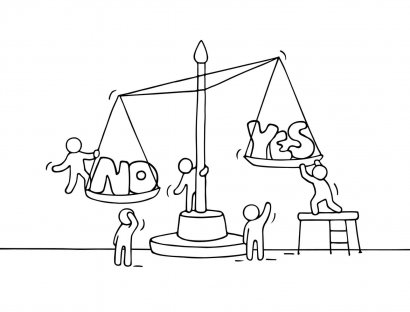 The Social State, also designated as the Social State of Law, is a concept that has had its origin in German political culture and we can place it at the beginning of the German state, while and after having undergone a series of transformations, today, we can say that it forms the ideological political bases of the Social Market Economy system.
The Social State, also designated as the Social State of Law, is a concept that has had its origin in German political culture and we can place it at the beginning of the German state, while and after having undergone a series of transformations, today, we can say that it forms the ideological political bases of the Social Market Economy system.
Apart from maintaining legality, the state has the purpose of protecting the rights of citizens. For this reason, in most national constitutions it is specified that the state is a social and legal institution.
The social dimension of the state
The concept is aimed at correcting the social and economic inequalities typical of capitalism. For this to be possible, it is necessary for public institutions to promote measures to improve the living conditions of all citizens.
The liberal state and the social state
The concept of the liberal state focuses on the following principles: the protection of individual rights, the guarantee of private property, the protection of civil liberties (for example, freedom of expression and the right to vote) and an economic system based on the laws of supply and demand. The ideology that sustains this vision of the state is liberalism. According to liberal approaches, the state has a fundamental function: to protect the freedom of citizens and guarantee security.
The conception of the social state tries to overcome the limitations of the vision of the liberal state. Thus, in the social state it is intended to guarantee individual freedoms and, at the same time, it is necessary to intervene so that the population as a whole has access to a series of social services, especially those related to education, health and housing. State institutions must be organized so that there is social cohesion and equal opportunities. The ideology that defends this vision of the state is democratic socialism.
In most constitutions of the Western world principles of liberalism and political philosophy inspired by socialism are collected.
The social state is based on the intervention of the state in some sectors of the economy and society
In the social state, economic activity cannot depend exclusively on the laws of the market. Consequently, from the social state approach, the need to intervene in all those contexts in which situations of social hardship and economic inequalities occur is defended. The purpose of this vision of the state is to guarantee a dignified life for citizens.
A Social State that performs each of its functions will provide integration for the less favored social classes, will compensate for inequalities, and will redistribute income.. And to achieve this state of affairs is that he will use instruments such as education.
The concept that concerns us has an ideologue, the influential German economist and sociologist Lorenz Von Stein, who exerted an important influence in the mid-19th century in Germany.
Stein argued that the Social State was a concrete way to avoid revolution. As according to him, society had ceased to constitute a unit as a consequence of the existence of social classes that makes each one unfailingly go after their own interests without caring about the rest and leading to dictatorial states, then, in these circumstances there may be a revolution . However, the Social State that he proposes is capable of initiating a reform in this regard and in fact improve the quality of life of the lower classes, avoiding the natural process of the social classes of wanting to move up socially.









